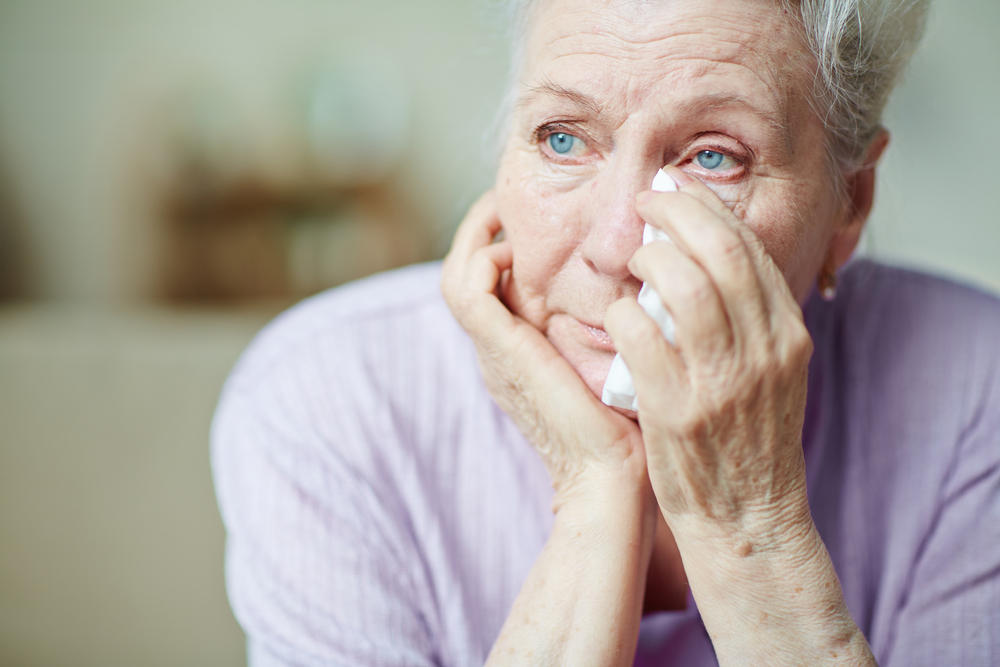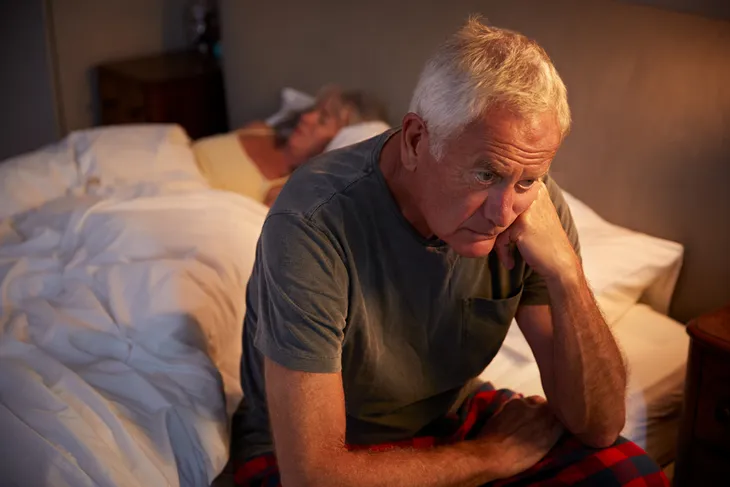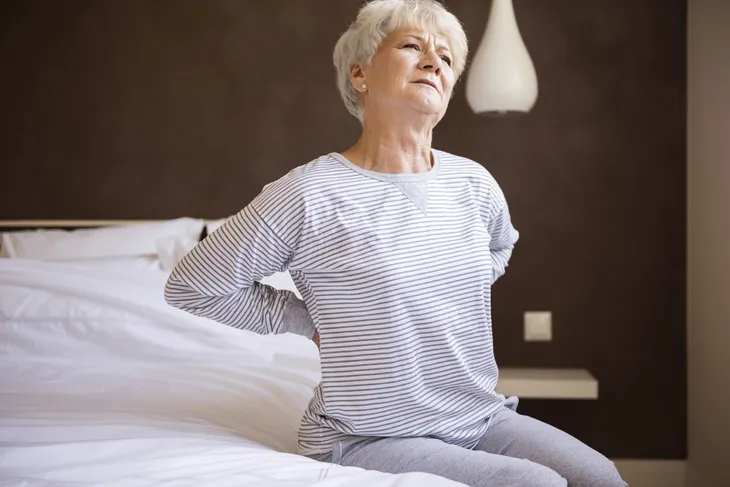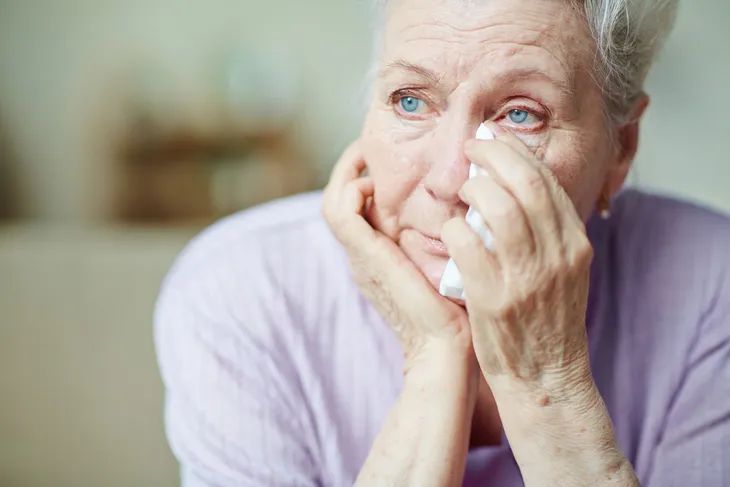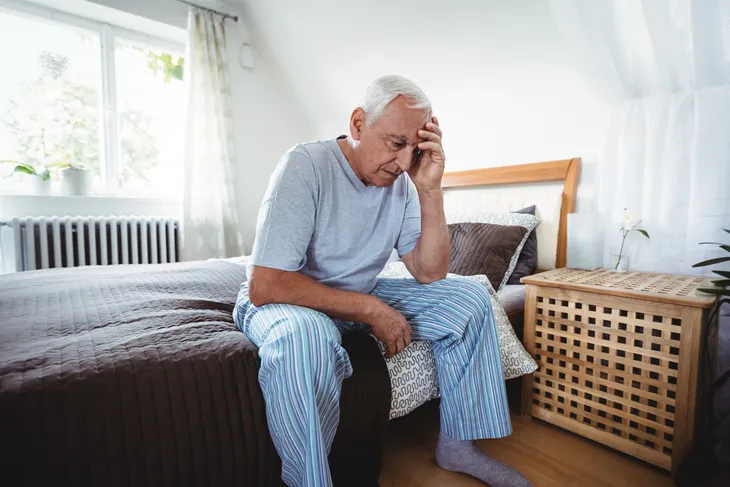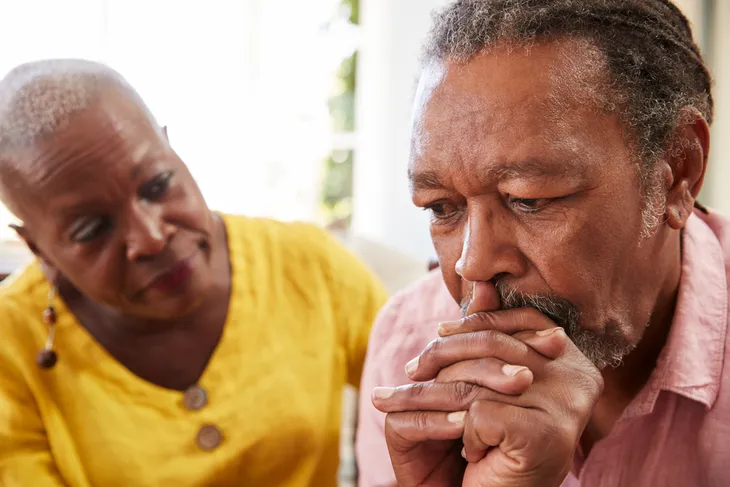Depression is often talked about for the younger generations including Millennials, as it’s on the rise. But it can hit seniors just as hard – and in some cases, even harder. Add to that the isolation and loneliness that sometimes comes with being a senior, and it can become a recipe for mental illnesses.
Depression among older adults is known as “geriatric depression,” and subsyndromal depression, which is depression that does not meet the full criteria to qualify for a diagnosis, is also common among seniors. A few episodes of sadness are not out of the ordinary, but symptoms that lower quality of life or become downright debilitating should be addressed – they’re not part of normal aging. Here’s what to look for…
Want senior content delivered straight to your inbox? Sign up for our exclusive email list and receive articles and news on diet & nutrition, fitness, and mental health dedicated specifically to our senior audience!
Insomnia
While many people have trouble falling asleep or staying asleep, it could point to depression among seniors according to WebMD. The source says that while insomnia is usually a marker of depression among the elderly, it’s also a risk factor in developing the mental illness.
The source says that while sometimes benzodiazepine drugs are used to combat this, some geriatric experts are pushing more towards remedies such as melatonin or a particular antidepressant called Silenor. Psychotherapy may be another approach to help if the other insomnia treatments fail, it adds.
Unexplained Pain
The Mayo Clinic says, “Pain and depression are closely related.” On one hand, having chronic aches and pains can lead to depression – meanwhile, the source says depression can also cause physical pain. In many cases, this pain is “unexplained” and can range from back pain to headaches, it adds.
This pain can be a contributor to insomnia, a symptom of depression mentioned earlier. It can also keep people (including seniors) from doing the things they love, including socializing. While pain can be caused by chronic health conditions such as diabetes, “Depression is often the cause of physical pain in older adults that is not explained by other medical conditions,” adds Healthline.
Lack of Concentration/Memory Loss
Cognitive decline is sometimes associated with aging, but it can have a variety of causes including medication side effects, as well as dementia (which is also not a normal part of aging). However, trouble concentrating can be linked to depression in seniors, according to Healthline.
Meanwhile, Harvard Medical School published an article that explains “late-life depression” may be a warning sign that memory problems or dementia are on the horizon. The article cites a study that explains dementia is more prevalent among adults who experience depression later in life. “The signs of depression are slightly different in older adults—and many of them can mimic memory loss and illness,” notes the source.
Common Symptoms
While there are a few possible symptoms that are more likely to affect the elderly with depression, there are other signs that can be observed in any age group, says Healthline.
These symptoms include feelings of worthlessness (low self-esteem), fatigue, being irritable or restless, or even showing apathy, it explains. A depressed patient may exhibit other warning signs such as losing their appetite, withdrawing from usual activities, or having “crying spells,” it adds.
Subsyndromal Depression in Seniors
According to ScienceDirect.com, major depressive illness affects almost 6-percent of U.S. seniors. That number is about 15-percent for this age group when it comes to “subsyndromal” depression, adds the source. However, this type of depression can be overlooked because the physical discomfort experienced by many seniors does not usually trigger a depression diagnosis on its own, it notes.
It’s more likely to be traced to depression if there are other factors such as loss of mobility or grieving a deceased spouse, it adds. Genetic factors are also a major consideration, it explains. “In the medically ill elderly, depressive symptoms may be overlooked because of the assumption that they are a part of the concurrent medical illness,” notes the source.
Possible Risk Factors/Causes
WebMD says there are some risk factors of depression that are more associated with seniors. For example, becoming a widow/widower can boost the risk, as can losing your social connections. Being female also increases the risk of depression later in life, it adds.
Meanwhile, a health episode common in advanced age could be a trigger for depression, it explains. This could be a stroke, heart problem, diabetes, cancer or ongoing (chronic) pain. Family history of major depression is also a red flag, it adds. The World Health Organization (WHO) says 1 in 6 seniors experience elder abuse that can lead to depression and anxiety, while other sources note substance abuse can be a factor.
Diagnosing Depression in Seniors
As mentioned earlier, diagnosing depression in seniors can be especially challenging if there are concurrent health problems. However, ScienceDirect.com explains that doctors can actually use brain imaging and “biochemical and physiological measurements” to pinpoint the mental illness.
Alternately, doctors can also screen seniors for depression using the Geriatric Depression Scale, which was designed specifically to recognize signs of depression in older adults. It is a questionnaire of “yes or no” questions that is filled out by the patient. “Screening for late-life depression is urgently required among the elderly in primary and residential health care settings,” it notes.
Possible Treatments
Healthline says that there’s no one-size fits all approach to treating depression among seniors. A doctor may prescribe medications for depression such as SSRIs or SNRIs, as well as monoamine oxidase inhibitors (MAOIs), explains the source.
A doctor or therapist may also suggest some lifestyle changes, such as getting more physical activity or finding a new hobby, it adds. It encourages seniors to visit with family and friends, and to ensure they get the right amount of sleep. Eating properly is also important to mental well-being. In addition, the source notes that art therapy can be helpful for seniors battling depression.
